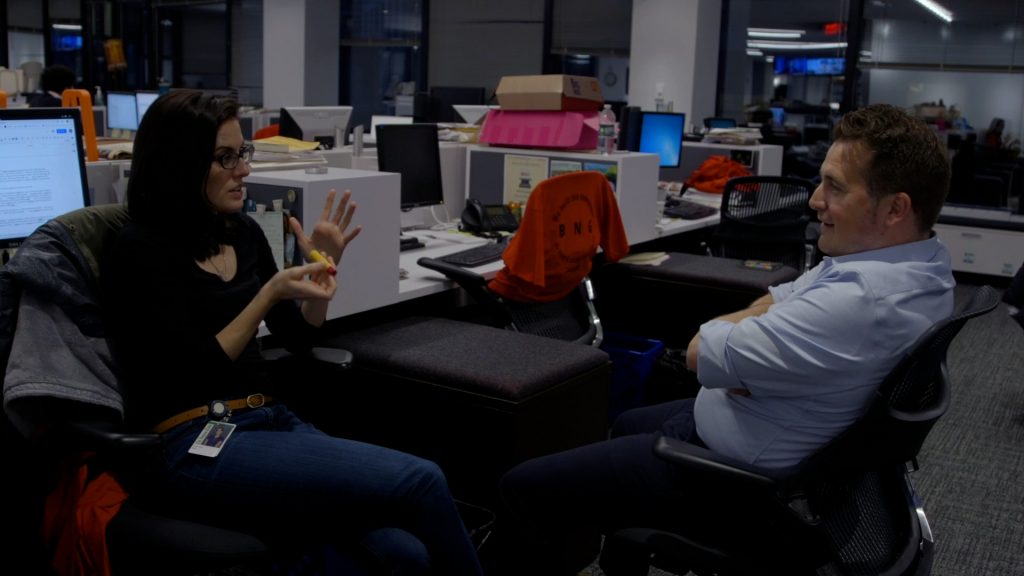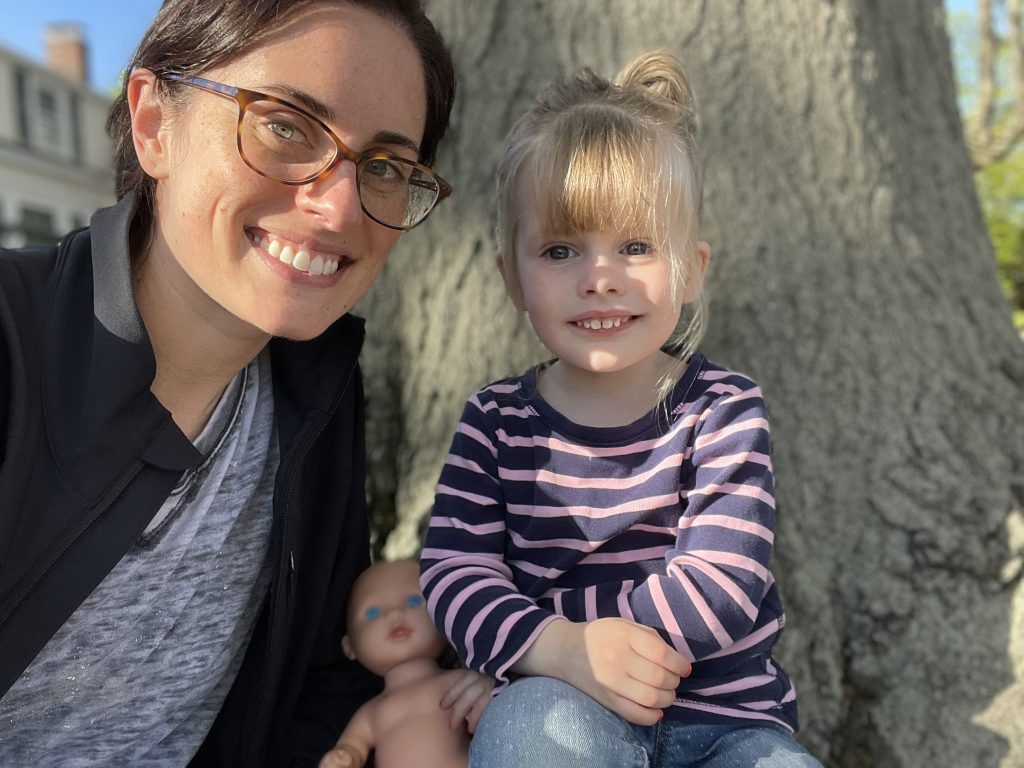Two Emersonians Part of Boston Globe Pulitzer Prize Winning Team

As a child, Evan Allen ’11 would walk into the Boston Globe’s headquarters to visit her father and see photos of all the paper’s Pulitzer Prize winners through the years.
Now, Allen and fellow Emersonian Brendan McCarthy ’04 will have their photos enshrined on those walls after being part of a Pulitzer Prize-winning team for the Globe‘s investigative series on states’ failure to keep dangerous drivers off the road.
“I remember walking slowly around the Pulitzer Prize walls and looking at all the pictures and thinking how cool that would be, but never thinking in connection to myself at all. It’s cool that we get to join that group of reporters who I feel are somewhat mythical,” said Allen, whose father, Scott Allen, continues to work at the Globe.

The Globe’s investigation was titled Blind Spot, which was inspired after a truck driver killed seven motorcyclists in New Hampshire in 2019. After initial reporting, Globe reporters realized the driver never should have been driving at all.
“Shortly after that it was a natural question — how many others are out there — drivers who shouldn’t be on the road?” said McCarthy. “What we determined is it was a shocking problem across the country that puts you and I — everybody — in danger. The problem was in plain sight.”
The two Lions are sharing the Pulitzer with Laura Crimaldi, Vernal Coleman, Matt Rocheleau, and Steven Wilmsen. While they are the named winners, McCarthy points out that more than 20 people worked on the project.
Allen was heavily involved in researching the trucking industry.
“There are all these different bureaucracies that are terribly mismanaged, opaque, and it’s like trying to get secrets from them,” said Allen. “They are incredibly impermeable. The information is technically public. It’s like going through a landfill of library books and trying to stitch them up together into one piece. We were reading documents written before I was born and sending them back and forth to untangle all these webs.”

From digging up old police reports they saw that many drivers had accidents that went unreported to states. Some states tell other states about accidents and violations through mail, which then sometimes goes unopened, and other states don’t even let states know about accidents that would affect someone’s driving record.
Their investigative series, as the Pulitzer judges cited, prompted immediate reforms, including suspensions, investigations, and reviews that started even before the series was released, said McCarthy.
“Officials were aghast and expressed surprise. Accountability reporting aims to make change and better the world,” said McCarthy. “In this case, this work spurs reforms that I feel saves lives. The thing that really struck me is the sheer magnitude of this problem. As part of the project we were able to see that one out of 10 drivers don’t have an offense on their record.
You go on a plane today, and you can go and tell who’s sitting in what seats. There are many security steps to fly. But on the road, there are not many.”
Allen said her Writing, Literature and Publishing major really helps her understand storytelling in journalism.
“For me, I came to journalism as a writer first. I love the reporting part, I think it’s really fun. But [storytelling] helps me report because I’m always thinking about how to write a story with interesting ways to show details,” said Allen.
“I took a huge number of literature and fiction-writing classes at Emerson. I used my time at Emerson to think hard about how a plot works, and how is the theme working. All things that make fiction really good are the same for what makes nonfiction really good. I understand the mechanics of what makes something really gripping to read,” Allen said.
McCarthy found Emerson to be a “learning laboratory” and participated in extracurriculars such as reading the news on WERS, working countless hours on the staff of the Berkeley Beacon, and working as a co-op at the Globe.
McCarthy and Allen both credited Professor Emeritus Jerry Lanson for his impactful Journalism classes.
McCarthy said former faculty member and former Globe staff member Ric Kahn was one of the biggest influences in his journalism career. He said Kahn taught him how to be a tremendous reporter, as well as smart and ethical.
Allen wrote and was the editor-in-chief for Gauge Magazine, and credited Gauge advisor and former associate professor Jeff Seglin for being an incredible mentor. He even officiated Allen’s wedding ceremony in 2016.
That feeling of Emerson camaraderie also imbued their Pulitzer Prize-winning team.
“I really loved the team that we were part of. These are people I not only liked working with, we text, go to each other’s house. It’s a very cool group to have this happen with. We’re friends,” said Allen.
Categories